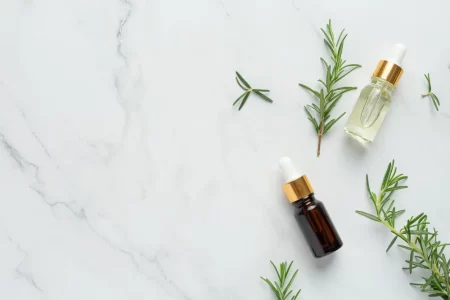 Aromatherapy, a holistic healing practice dating back thousands of years, taps into the therapeutic properties of essential oils to promote physical, emotional, and mental well-being.
Aromatherapy, a holistic healing practice dating back thousands of years, taps into the therapeutic properties of essential oils to promote physical, emotional, and mental well-being.
Extracted from aromatic plants, these potent oils are not only renowned for their pleasing scents but also for their numerous benefits.
Today, we delve into the world of aromatherapy and explore the myriad advantages it offers.
1. The Science Behind Aromatherapy
Aromatherapy operates on the principle that the inhalation or topical application of essential oils can stimulate the olfactory system, influencing the brain’s limbic system responsible for emotions, memory, and behavior. The chemical constituents of essential oils can have a profound impact on our physiological and psychological states, providing a natural and gentle way to address various health concerns.
2. Stress Reduction and Relaxation
One of the most sought-after benefits of aromatherapy is stress reduction. Certain essential oils, such as lavender, chamomile, and bergamot, possess calming properties that help alleviate stress and anxiety and even improve sleep quality.
Diffusing these oils or using them in massage oils can induce a sense of tranquility and relaxation, making aromatherapy an excellent tool for modern-day stress relief.
3. Boosting Cognitive Function
Aromatherapy can also boost cognitive function and mental clarity. Oils like rosemary and peppermint are known to enhance focus, memory retention, and overall cognitive performance.
Inhaling these invigorating scents before a study session or work task can improve productivity and concentration.
4. Easing Physical Discomfort
Essential oils have remarkable analgesic and anti-inflammatory properties that can help relieve physical discomfort.
For example, tea tree oil is a potent antiseptic that aids in treating skin conditions, while eucalyptus oil can ease respiratory issues.
Incorporating these oils into massages or using them in baths can provide soothing relief for various ailments.
5. Supporting Emotional Well-being
Beyond stress reduction, aromatherapy can positively impact emotional well-being. Oils like ylang-ylang, jasmine, and citrus scents are believed to uplift mood, reduce feelings of depression, and promote a sense of joy.
Diffusing these oils during times of emotional distress can offer solace and comfort.
6. Enhancing Immunity
Certain essential oils exhibit powerful antimicrobial properties, which can aid in fortifying the immune system. Eucalyptus, lemon, and tea tree oils have been traditionally used to fight off infections and bolster overall immunity. Regular use of these oils through inhalation or diluted topical application can be a valuable preventive measure against seasonal illnesses.
Aromatherapy, with its extensive range of benefits, offers a natural and non-invasive approach to healing and well-being.
Picture Credit: Freepik
